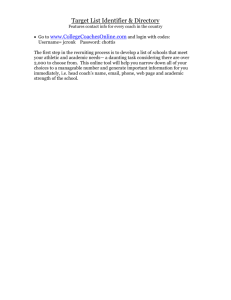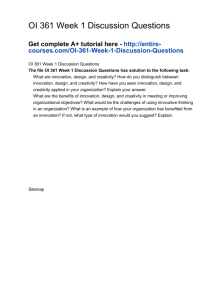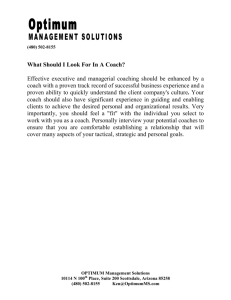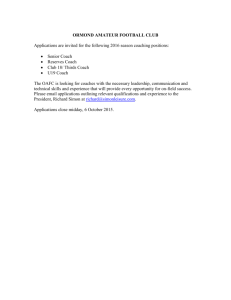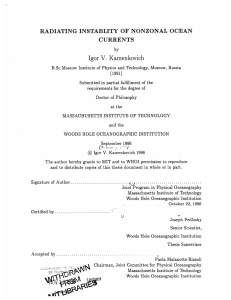MIND MAPS - Oncourse
advertisement
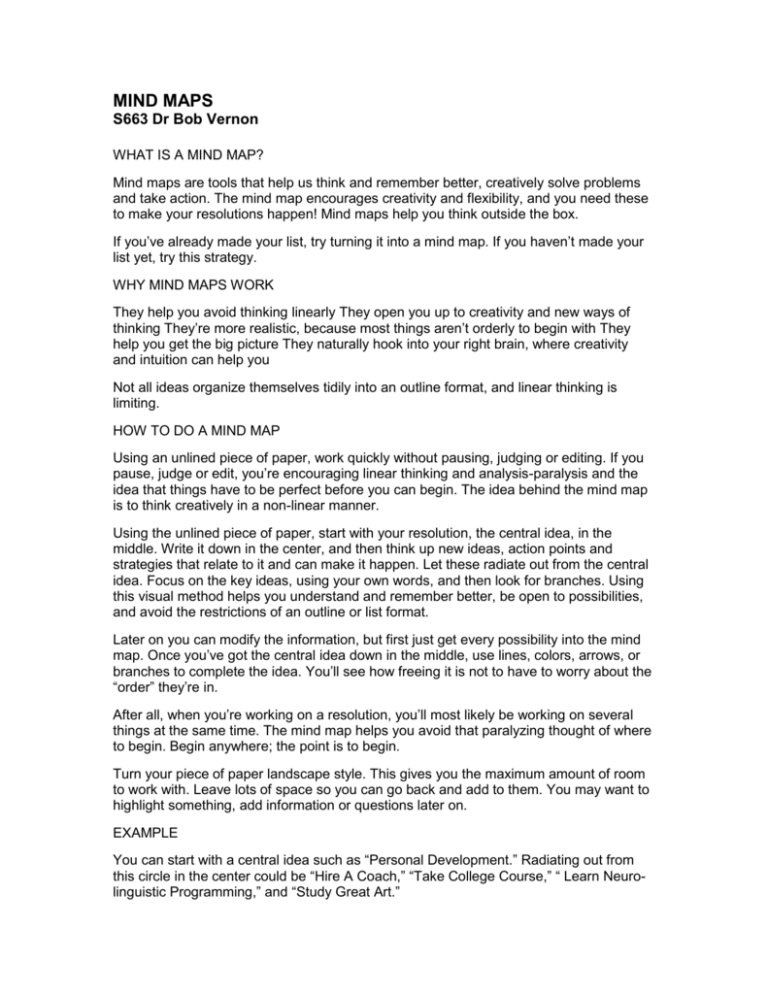
MIND MAPS S663 Dr Bob Vernon WHAT IS A MIND MAP? Mind maps are tools that help us think and remember better, creatively solve problems and take action. The mind map encourages creativity and flexibility, and you need these to make your resolutions happen! Mind maps help you think outside the box. If you’ve already made your list, try turning it into a mind map. If you haven’t made your list yet, try this strategy. WHY MIND MAPS WORK They help you avoid thinking linearly They open you up to creativity and new ways of thinking They’re more realistic, because most things aren’t orderly to begin with They help you get the big picture They naturally hook into your right brain, where creativity and intuition can help you Not all ideas organize themselves tidily into an outline format, and linear thinking is limiting. HOW TO DO A MIND MAP Using an unlined piece of paper, work quickly without pausing, judging or editing. If you pause, judge or edit, you’re encouraging linear thinking and analysis-paralysis and the idea that things have to be perfect before you can begin. The idea behind the mind map is to think creatively in a non-linear manner. Using the unlined piece of paper, start with your resolution, the central idea, in the middle. Write it down in the center, and then think up new ideas, action points and strategies that relate to it and can make it happen. Let these radiate out from the central idea. Focus on the key ideas, using your own words, and then look for branches. Using this visual method helps you understand and remember better, be open to possibilities, and avoid the restrictions of an outline or list format. Later on you can modify the information, but first just get every possibility into the mind map. Once you’ve got the central idea down in the middle, use lines, colors, arrows, or branches to complete the idea. You’ll see how freeing it is not to have to worry about the “order” they’re in. After all, when you’re working on a resolution, you’ll most likely be working on several things at the same time. The mind map helps you avoid that paralyzing thought of where to begin. Begin anywhere; the point is to begin. Turn your piece of paper landscape style. This gives you the maximum amount of room to work with. Leave lots of space so you can go back and add to them. You may want to highlight something, add information or questions later on. EXAMPLE You can start with a central idea such as “Personal Development.” Radiating out from this circle in the center could be “Hire A Coach,” “Take College Course,” “ Learn Neurolinguistic Programming,” and “Study Great Art.” Then you can take another piece of paper and put one of these peripheral ideas as the central point and make another mind map. For example, radiating out form “Learn Neuro-linguistic Programming” would be “Hire a coach,” “Visit Websites,” “Read Books,” and “Actively Practice.” See how it works? And “see” is the central point. Make your mind map with illustrations or pictures for maximum impact. For instance if your want to increase your profits by 15% this year, put a graph on there, showing a 15% increase. If you want to return to your ideal weight, put in a picture of you when you were at your ideal weight or some other inspiring, positive and motivational picture. DOES THIS WORK? Ed Borasky, of Borasky Research, is a coach who works with neuro-linguistic programming and mind mapping. He’s seen the results with clients, and is so convinced of the results, he’s set up his website like a mind map. Want to see what mind mapping looks like? Go here: http://www.borasky-research.net. Ed uses mind mapping for taking notes in meetings, documenting software, designing Neuro-Semantics training manuals and in managing his coaching processes. Ed says, “Since I started using mind mapping, my productivity has nearly doubled!” He now coaches others on how to use this process. I use it myself and have had great results. Most recently I was thrown a curve – I was supposed to give a presentation, and two days before, the topic was changed to something I’d never spoken on before. I wanted it to be interactive, playing off comments from the seminar participants, and, if you’ve even done this, you know it doesn’t organize itself linearly. Drawing a mind map was the perfect solution. I put the topic “Stress Management” in the center, and then the points to be covered radiating out like spokes from a wheel: “Causes,” “Remedies,” “Latest Research Findings,” “Attentional Deficit Bandwidth,” etc. This let me see what I wanted to cover, without having to control the way it was presented, or in what order. Then I could start out the seminar not by a lecture, adhering to a strict outline, but by asking participants what they had come to learn, and moving forward from there, keeping in mind the major points I wanted to make. This avoided the constraints of an outline, which isn’t helpful in an interactive presentation. I’d been deliberating for hours about the presentation, and I did the mind map in 5 minutes. You’ll find if you can’t seem to get something organized in your mind, it probably needs the mind map formula, and you’ll probably agree with me and Ed Borasky – you’ll wonder how you go along without it. http://www.susandunn.cc. Source: Susan Dunn http://www.mind-mapping.org/mindmapping-and-you/basic-introduction-tomindmapping.html



